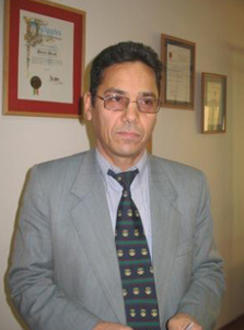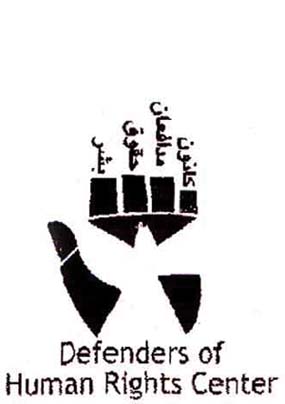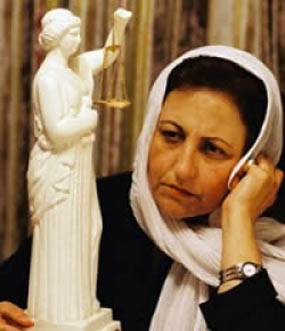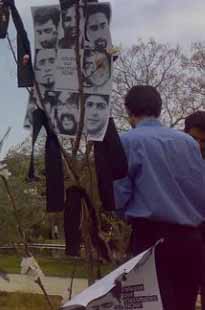| Home > 30 years human rights in Iran > Interview > An Interview with Abdol-Fattah Soltani, a founding member of the Center for the Defense of Human Rights | |||
Abdol-Fattah Soltani, a member of the Center for the Defense of Human Rights An Interview with Abdol-Fattah Soltani, a founding member of the Center for the Defense of Human Rights By Ardavan Rouzbeh a.roozbeh@radiozamaneh.com
Abdol-Fattah Soltani, an attorney and human rights activist, is one of the founding members of the Center for the Defense of Human Rights in Iran. The Center recently attracted a great deal of attention and media coverage after the home and office of its chairwoman, Shirin Ebadi, came under attack, the Center’s manager, Jinous Sobhani, arrested and its website filtered upon launch. After many years of activity, the Center has recently been branded “illegal” by Iran’s Interior Ministry. Here, Mr. Soltani discusses some of the upheavals faced by the Center for the Defense of Human Rights.
In most societies today, human rights are violated in three different areas. The first takes place in the personal sphere. Abuse inflicted by one individual upon another can take the form of spousal or child abuse. This violation is not inflicted by the state and is more likely rooted in the culture of a society. Of course the government has a duty to enhance cultural sensitivities in this area through education and awareness programs in the media. However, unfortunately, this has not been done sufficiently or effectively in most cases. The two remaining areas have to do with the relationship between citizens and their government. So the second area is the legislative sphere. Discriminatory laws passed by legislatures in many countries legalize human rights abuses. Third is the violation of human rights against the people directly by the government.
Abdol-Fattah Soltani, a member of the Center for the Defense of Human Rights In post-revolutionary Iran, in the chaotic conditions immediately after the revolution, the ensuing war, and even the post-war period, we have seen gross violations of human rights in all three areas. This has been the case even though it is prohibited by the Constitution and even though the country's revolutionary leadership has spoken against it in speeches and issued decrees prohibiting it. Concerning the founding of the Center, we put our heads together and tried to come up with a project we could take on as a team. The first idea was to promote human rights by teaching the basic principles to the population at large. We wanted to make people aware, conscious and familiar with their rights from a constitutional perspective, socially, economically, politically as well as under international law and various international treaties. We set out to educate people through the use of simple laymen terms. At the same time, we tried our utmost to encourage the ruling establishment -- by persuasion and through civilized means, and certainly not by violence -- to modify their behavior and to respect and preserve the basic rights of its people. We decided to set up an NGO nine years ago. The founding members were Mrs. Shirin Ebadi (before winning the Nobel Prize), Dr. Mohammad Sharif, Dr. Seifzadeh and Dr. Mohammad-Ali Dadkhah. The founding of the Center for the Defense of Human Rights was based on Articles 26 and 27 of the Constitution which states that all parties and groups, whether political, in defense of human rights, NGOs, unions, syndicates, etc., shall be free to operate.
Moreover, Article 26 of the Constitution and Article 6 of the 1982 Law on Activities of Political Parties, clearly and unambiguously state that to establish parties, groups, human rights organizations, unions and the like, no permit or authorization is required from any authority. However, if one does try to obtain a permit, there are incentives such as annual financial assistance by the Interior Ministry. That is why we sought out a permit a year after we established the Center. After many ups and downs and years of inaction, the Center’s permit was finally approved in 2004. Legally, the ministry was obligated to approve our permit within three months. In reality, it took several years. Legally, after the approval of the permit, they were required to issue it in a period of 10 to 15 days. However, they still have not done so. This is illegal and unconstitutional and can be the basis of a lawsuit.
Shirin Ebadi, nobel prize winner In any event, after many more legal and administrative peaks and valleys, and followups, it all proved fruitless. On Dec. 21, 2008, the authorities shut down the Center without a warrant or presenting any legal or judicial justification. We believe this is a reactionary move by the hard-liners. They want to put an end to the activities of all civil society institutions. They are worried about Mr. Ahmadinejad's chances of reelection and the possibility that Mr. Khatami or someone else will win. These concerns have provoked the hard-liners -- unfortunately a very powerful group in control of all levers of power, but a limited popular base -- to crackdown on our Center, civil society, student movements, religious minorities, and others. This is to discourage the electorate, and to stay in power through low voter turnout. The Center for the Defense of Human Rights believes that civil institutions are among the basic rights of the people and we intend to continue to pursue our activities. It is our hope that the “wise” faction is able to put the brakes on the hard-line faction and to keep them from consistently breaking the laws. Our objective is to advance the ideals of human rights within our society. Training, education and promoting awareness shall continue by holding news conferences, offering classes and specialization courses, and so on. We continue to believe that as long as the public’s awareness of its rights has not reached a sufficient level, we will continue to witness wide-scale violations of human rights. It is our further hope that religious leaders in Qom, as well as government leaders, realize the importance of conducting “healthy, clean and just” elections, tolerating civil society and allowing them to promote human rights, etc. I'd like to add that some in the establishment do understand the need for this. Even a few years ago in the Judiciary and the Sixth Majlis a Civil Rights Protection law was created. We hope they stick to their domestic and international commitments and we also hope that human rights activists are allowed to pursue their activities in a calm atmosphere and one free of fear and intimidation.
|
|||
 |















